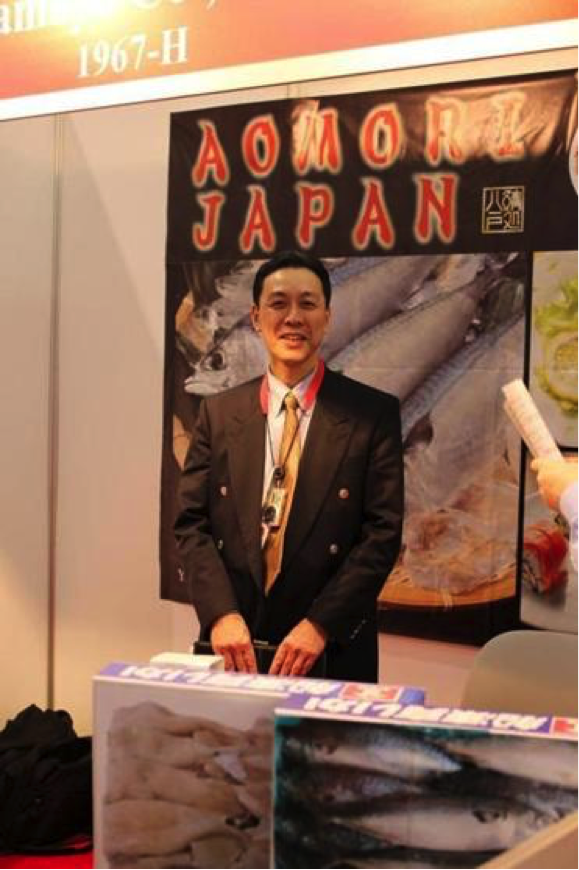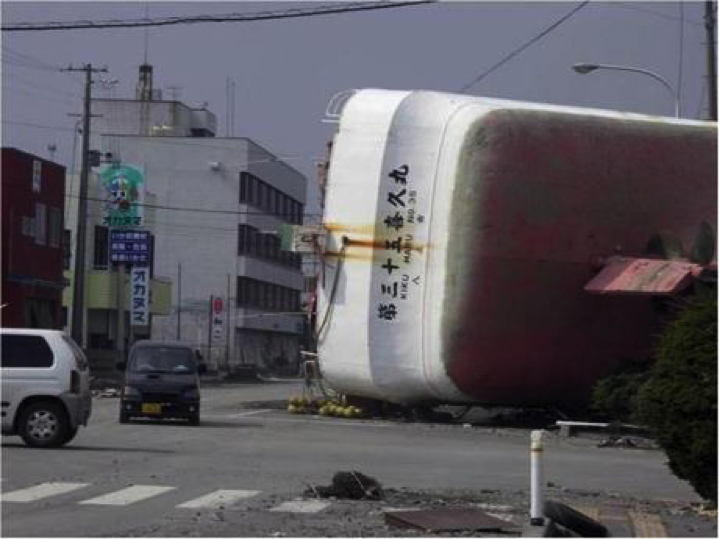Quake survivor reels in business
Among the familiar faces at Kenji Machida’s Yamayo booth at the International Boston Seafood Show last week were exporters, distributors, and fishermen from New Bedford, Gloucester, Portsmouth, N.H., and New Brunswick, Canada. They are Machida’s friends from the days when he worked in an office in Wakefield exporting their lobster, snow crabs, herring, tuna, and monkfish to Japan.
YAMAYO The tsunami had swept his company’s 440-ton ship out to sea and later deposited it on a street in Hachinohe.
Machida had returned to Japan to export seafood to the United States. But the giant earthquake and resulting tsunami last year nearly wiped out his business in Hachinohe, 200 miles north of the quake’s epicenter. Because of efforts to get his $50 million-a-year firm up and running, the company founded by his grandfather in 1927 was the only earthquake survivor exhibiting this year.
As talk turned to catch limits, tariffs, and pricing, Machida didn’t dwell on the tsunami, even though his company had been at the brink of ruin. While some company presidents might flaunt what happened to him as the ultimate seafaring tale, Machida says he does not want his story used for profit.
The tale is not without dramatic twists. “We had a blackout for five days. We didn’t know what happened to our business. Our customers thought that our business went out to sea.’’
Yamayo’s 440-ton ship, the Kiku Maru, was swept out to sea. It was later deposited on a street in Hachinohe. The seven-member crew all survived. The ship was scrapped. “The greatest thing was that no one lost their life,’’ says Machida.
He describes how the US military helped the seafood industry in his area recover in the weeks following the tsunami. The disaster relief effort, Operation Tomodachi, involved the Army, Air Force, Navy, and Marines. “When the tsunami hit I imagined our business would be diminished. We are very grateful to the US and American people. The American soldiers helped the fish market near our company. They helped restore the market very quickly.’’
The Seafood Show was a success for Machida, who signed new accounts, including Ebisuya, the Japanese market in Medford, which now sells his seasoned squid. “We just started carrying Yamayo’s shio-kara,’’ says Takashi Iida, Ebisuya’s meat and fish manager. “We already sold four or five containers.’’
Safety of the seafood is a concern. Machida’s operations are well north of the nuclear disaster, but fish can migrate long distances. Apparently, little or no contaminated fish has reached the United States. The US Food and Drug Administration as of February had sampled almost 200 shipments of fish from Japan since the disaster. None had any detectable radiation.
At a commemoration of the tsunami at the Algonquin Club after the show, Machida received quiet recognition as hundreds of guests swooned over appetizers and sushi made with the company’s mackerel, prepared by local restaurants Oga, Osushi, Cafe Sushi, and Snappy Sushi. In attendance with politicians and academics were Boston Ballet principal dancer Misa Kuranaga, Boston Haiku Society president Raffael de Gruttola, Mochi Kitchen owner Erino Wade, and clarinetist Richard Stolzman.
“I had a great time,’’ says Machida. “Boston is my hometown in the States.’’


